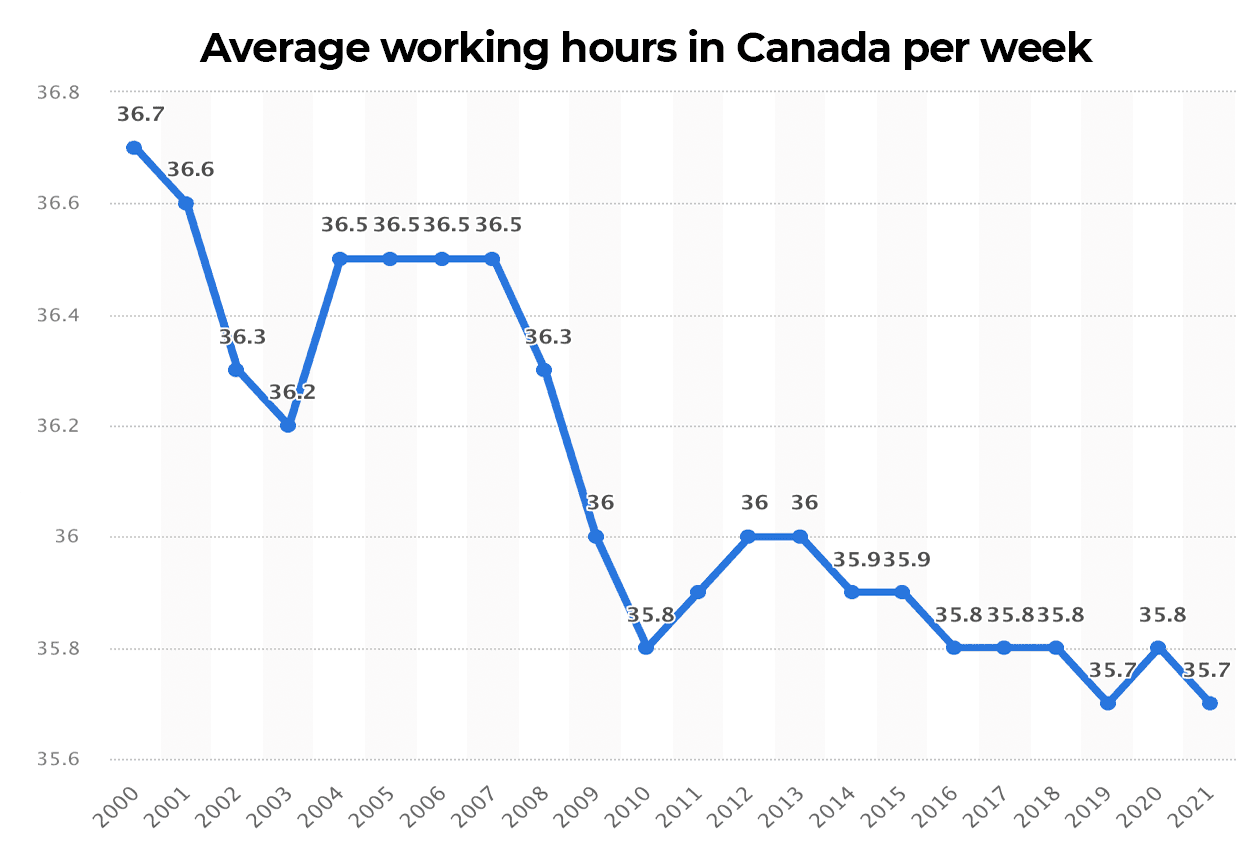Canada
Dozens of companies in Canada are experimenting with a 4 day work week as part of the 4 Day Week Global pilot.
Canada's Move Towards the 4-Day Work Week
Canada's exploration of the 4-day work week began in early 2022 with a pilot program led by 4 Day Week Global. By October, a second wave of companies joined, aiming to maintain full productivity with reduced hours.
This initiative aims to prove that a 20% reduction in work hours, without pay cut, can still sustain 100% productivity.
Would you like a 4 day work week?
Working Hours in Canada
Standard business hours in Canada are 8 hours per day, 40 hours per week. While some industries are federally regulated, such as banking and air transportation, other industries such as engineering, dentistry, and the medical field are permitted to work outside of standard working hours, according to the needs of their business.

Employers in Canada are required to keep records of their employees’ working hours for 36 months in order to prove that they have complied with working hours and overtime laws. In Canada, employees in federally regulated industries are compensated 1.5 times their normal pay for overtime work.
On average, employees in Canada work about 37.5 hours per week.
Vacation Policy in Canada
Compared to most countries, Canada’s vacation time policy is minimal. Although laws vary by province or territory, most require employers to provide at least 10 days off per year to employees, in addition to 9 paid public holidays.
If an employee chooses not to take vacation time, their employer earns the right to decide when the employee will go on vacation. If an employee is terminated with any accrued vacation time, the vacation time is cashed out.
Part Time Working in Canada
As of October 2022, 3.6 million employees in Canada worked part time, which is close to 20% of the total workforce.
Over 75% of Canada’s part time workers are women. When surveyed, the most common reason women gave for working part time was child-care, while only about 3% of men who work part time cited the same reason.
Working Remotely in Canada
The Covid-19 pandemic catalyzed a shift towards remote working in Canada. Pre-pandemic, only 4% worked remotely, but by 2021, remote workers constituted 30% of the workforce, highlighting a dramatic change in work culture.
The number of remote employees varies by industry. For example, 85.3% of Canada’s finance and insurance sectors report being able to do their job remotely, while industries such as hospitality, construction, and agriculture report much lower numbers of remote workers.